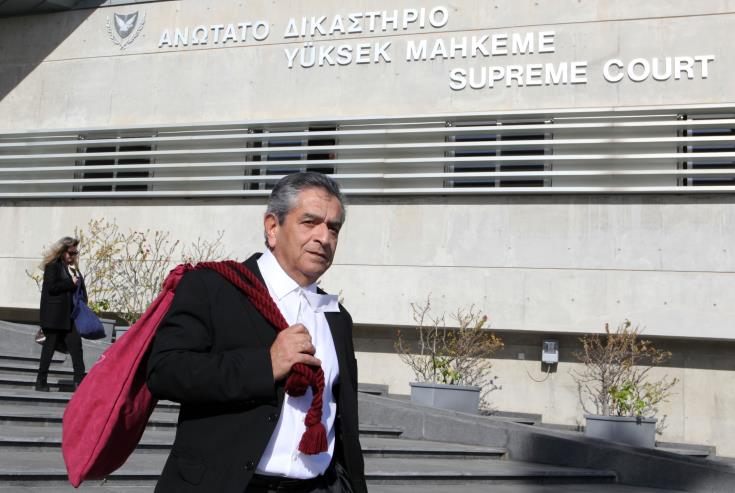Cyprus’ Supreme Court on Friday ruled that cuts imposed on the pay and pensions of civil servants during the 2013 financial crisis were legal, ensuring the government avoided being bankrupted.
This decision, taken by the majority of the bench, upheld an appeal submitted by the attorney general against a lower court ruling in March last year which would have required the government to dig deep to reimburse the cuts.
According to estimates, the government was liable for €800 mln to compensate civil servants affected by the loss of income.
The decision will come as a huge relief to the government amid the coronavirus outbreak which has effectively brought the economy to a standstill.
Finance Minister, Constantinos Petrides welcomed the ruling which upheld the government’s decision to impose salary and pension cuts in the public sector during the bailout debacle.
Speaking to the Cyprus News Agency, Petrides said the decision “legally consolidates the government’s policies that safeguard fiscal and macroeconomic stability and enable compliance with the fiscal rules of the European Union.”
He said the decision, “is particularly important in this period of economic crisis, where the economy is striving to tackle the consequences of the pandemic.”
President Nicos Anastasiades tweeted his satisfaction with the “independence, credibility, integrity of the judiciary” and congratulated Attorney General Costas Clerides for his “flawless handling of the case”.
The Administrative Court had ruled that pay cuts imposed on Cyprus civil servants as part of an austerity drive were unconstitutional.
It said a pay rise freeze, a 3% contribution toward pensions, and a reduction in civil servants pay was in violation of Article 23 regarding the protection of the right to property.
These austerity measures were imposed by a cash-strapped government that tried reign in debt as the economy went into meltdown.
Civil servants pay cuts were part of broader austerity measures imposed by a money-poor government seven years ago, as a result of a runaway public sector deficit and the banking system’s uncontrolled exposure to toxic Greek government bonds.
In March 2019, the Administrative Court ruled that the legislation adopted during the year of the financial crisis was unconstitutional. Under the right to property, it considered salaries as property items.
Decision reversed
The Supreme Court justified its decision saying that it considers the relative laws to be constitutional, justifying the Republic’s position that in the event of an emergency, the state may partially reduce wages.
The government decided in 2018 to proceed with the gradual restoration of salaries and pensions by 2022.
With its decision, the Supreme Court opens the door for the government to reduce salaries or pensions again in the public sector, as it may choose to do during the coronavirus crisis.
What will need to happen is for Article 23 of the constitution to be amended.
After the ruling of the Court, this can now be done with a simple House majority, instead of the two-thirds needed for an amendment on a constitutional article.
The Federation of Employers & Industrialists (OEB) welcomed the Supreme Court’s decision.
In a statement, OEB said with this decision public finances are given space to breathe, giving the state more space to support the real economy during this difficult time the country is going through due to the coronavirus pandemic.
In comments to the Cyprus News Agency, the chairman of the Fiscal Council Demetris Georgiades, said: “The decision of the Supreme Court does away with a significant uncertainty that hovered not only over public finances but over the economy as a whole.”
Georgiades noted that possible ratification of the first instance decision, “would have made things difficult for Cyprus to cover future financing needs as the cost of borrowing would increase significantly”.
Attorney-General Costas Clerides described the Supreme Court’s decision on public salaries as very important, noting that a binding precedent is being set for the Republic.
He said that the main message sent through this decision is that individual rights, such as those guaranteed by Article 23 of the Constitution, which is the right to property, which includes the right to a salary, are fully respected and guaranteed.
“But with the condition that the core of this right is not affected, the state may impose some restrictions, which of course must be fully justified and proportionate, that is, in terms of the purpose for which they are aimed.”










